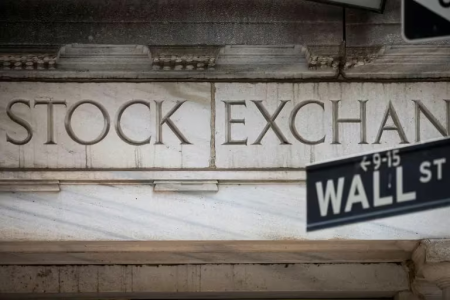Gary
New member
The markets are beginning to see with greater concern the growing political tensions faced by the Government - Infobae

Source:

 www.infobae.com
www.infobae.com
February 27, 2024
The good fiscal result in January and the expense reduction policy had a good impact among investors so far. However, the escalation of fights with governors and Congress began to turn on the yellow lights
By Pablo Wende

Although the dollar remained stable and the Central Bank continued to accumulate reserves, as it has been doing since the first day that Javier Milei assumed the presidency, alarm signals also appeared in the markets. The clearest were the falls in all dollarized bonds, with the consequent rebound in country risk, and a somewhat weaker performance in Argentine stocks listed in New York.
This is not an abrupt change in the positive trend that Argentine assets have been showing. But there is a first yellow signal, which would be signaling a new perspective on the part of investors: now it would seem that the growing political noises are beginning to filter into decision-making, something that has not been happening since the start of the current administration.
Not even the collapse in activity and consumption had generated major concerns among portfolio managers, because they saw it as a temporary effect. But doubts also began to appear about the timing and magnitude of the rebound, which would finally give the President much more political backing.

FILE PHOTO: The entrance to the New York Stock Exchange (NYSE) on Wall Street in New York City, United States. November 15, 2022. REUTERS/Brendan McDermid/File
The drop in dollar bonds, as happened with AL 2035, exceeded 2%, while others lost around 1%. Most are trading around USD 40, a substantial recovery considering that last year they moved in the area between 20 and 25 dollars.
But more than these faint signs of weakness, yesterday was a day of many consultations by foreign investors and also many streaming meetings of local stock exchange companies. Investors took note of the escalation of conflicts that Milei faces, there is no doubt about that.
However, it is the President who is willing to accelerate at every opportunity that is presented to him. In the midst of the fight with the governor of Chubut, Ignacio Torres, over the collection of a debt by withholding funds from the co-participation, the decision was added to withdraw from Axel Kicillof the funds corresponding to 1% of the co-participation that Alberto awarded him by decree. Fernández, taking away resources from the city of Buenos Aires.
In the middle, La Rioja announced that it is preparing to restructure a dollar bond that it had already renegotiated in 2021. Although this is a specific case, this measure will also raise doubts regarding the difficulties of the national government itself in facing future maturities avoiding a new restructuring.
The context is also not very conducive for the Government to obtain the approval of laws in a Congress in which it has a very minority presence. To make matters worse, the alliance with the PRO that Milei himself referred to as soon as he arrived from his trip to Israel and Rome seems distant. So much so that all the governors of Together for Change, including the head of the Buenos Aires Government, Jorge Macri, signed a letter in support of the Chubut president and against the national government.
The markets were also emboldened by the fiscal surplus achieved by the Government in January. Of course, now the fear is that it will not be so easy to repeat it in subsequent months, taking into account that the effect of the “liquefaction” of pensions and public salaries is not lasting over time. Now the adjustment must weigh on politics and the provinces have an important weight to achieve the objective. For this reason, the upcoming spending and fiscal result data will be essential to sustain asset prices and also to maintain the downward trend in inflation and reach single monthly digits as soon as possible.

Source:

Los mercados empiezan a ver con mayor preocupación las crecientes tensiones políticas que enfrenta el Gobierno
El buen resultado fiscal de enero y la política de reducción de gastos impactó bien entre los inversores hasta ahora. Sin embargo, la escalada de peleas con gobernadores y el Congreso empezaron a encender las luces amarillas
February 27, 2024
The good fiscal result in January and the expense reduction policy had a good impact among investors so far. However, the escalation of fights with governors and Congress began to turn on the yellow lights
By Pablo Wende

Although the dollar remained stable and the Central Bank continued to accumulate reserves, as it has been doing since the first day that Javier Milei assumed the presidency, alarm signals also appeared in the markets. The clearest were the falls in all dollarized bonds, with the consequent rebound in country risk, and a somewhat weaker performance in Argentine stocks listed in New York.
This is not an abrupt change in the positive trend that Argentine assets have been showing. But there is a first yellow signal, which would be signaling a new perspective on the part of investors: now it would seem that the growing political noises are beginning to filter into decision-making, something that has not been happening since the start of the current administration.
Not even the collapse in activity and consumption had generated major concerns among portfolio managers, because they saw it as a temporary effect. But doubts also began to appear about the timing and magnitude of the rebound, which would finally give the President much more political backing.

FILE PHOTO: The entrance to the New York Stock Exchange (NYSE) on Wall Street in New York City, United States. November 15, 2022. REUTERS/Brendan McDermid/File
The drop in dollar bonds, as happened with AL 2035, exceeded 2%, while others lost around 1%. Most are trading around USD 40, a substantial recovery considering that last year they moved in the area between 20 and 25 dollars.
But more than these faint signs of weakness, yesterday was a day of many consultations by foreign investors and also many streaming meetings of local stock exchange companies. Investors took note of the escalation of conflicts that Milei faces, there is no doubt about that.
However, it is the President who is willing to accelerate at every opportunity that is presented to him. In the midst of the fight with the governor of Chubut, Ignacio Torres, over the collection of a debt by withholding funds from the co-participation, the decision was added to withdraw from Axel Kicillof the funds corresponding to 1% of the co-participation that Alberto awarded him by decree. Fernández, taking away resources from the city of Buenos Aires.
In the middle, La Rioja announced that it is preparing to restructure a dollar bond that it had already renegotiated in 2021. Although this is a specific case, this measure will also raise doubts regarding the difficulties of the national government itself in facing future maturities avoiding a new restructuring.
In the first weeks of March, several “investor tours” will arrive in Argentina who want to see more closely what the Milei phenomenon is about and if it is really time to start incorporating Argentine assets or in some cases expand their holdings. But with so many open political fronts, it will not be easy for them to decide so quickly.A new perspective is emerging from investors: now it seems that the growing political noise is beginning to filter into decision-making, something that has not been happening since the start of the current administration.
The context is also not very conducive for the Government to obtain the approval of laws in a Congress in which it has a very minority presence. To make matters worse, the alliance with the PRO that Milei himself referred to as soon as he arrived from his trip to Israel and Rome seems distant. So much so that all the governors of Together for Change, including the head of the Buenos Aires Government, Jorge Macri, signed a letter in support of the Chubut president and against the national government.
The markets were also emboldened by the fiscal surplus achieved by the Government in January. Of course, now the fear is that it will not be so easy to repeat it in subsequent months, taking into account that the effect of the “liquefaction” of pensions and public salaries is not lasting over time. Now the adjustment must weigh on politics and the provinces have an important weight to achieve the objective. For this reason, the upcoming spending and fiscal result data will be essential to sustain asset prices and also to maintain the downward trend in inflation and reach single monthly digits as soon as possible.

